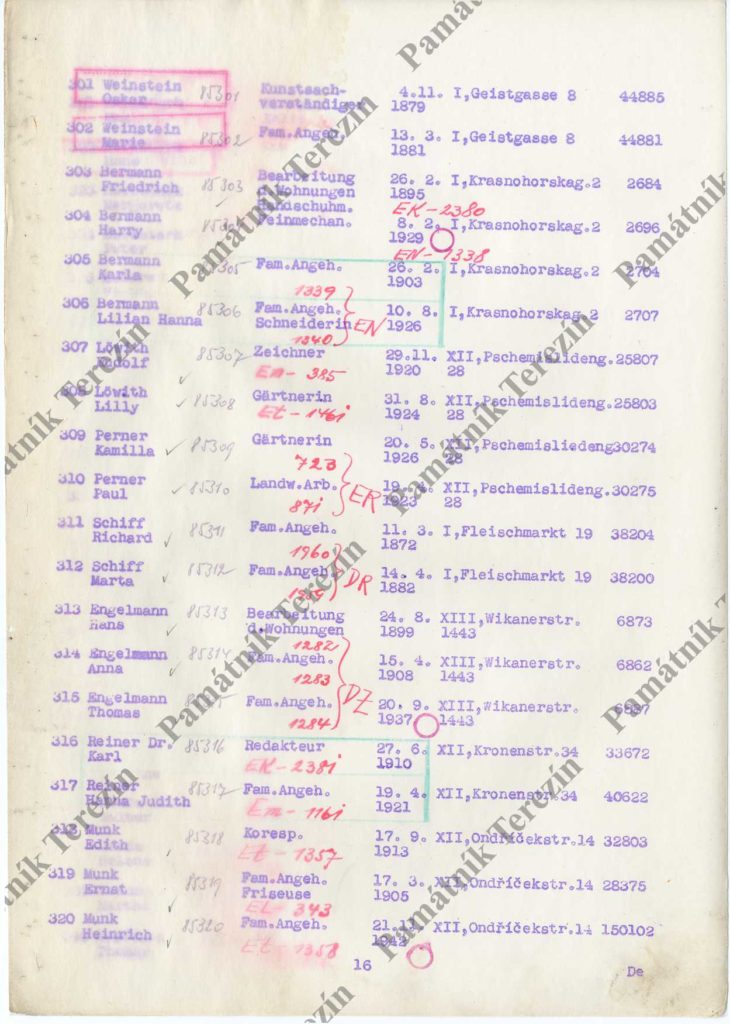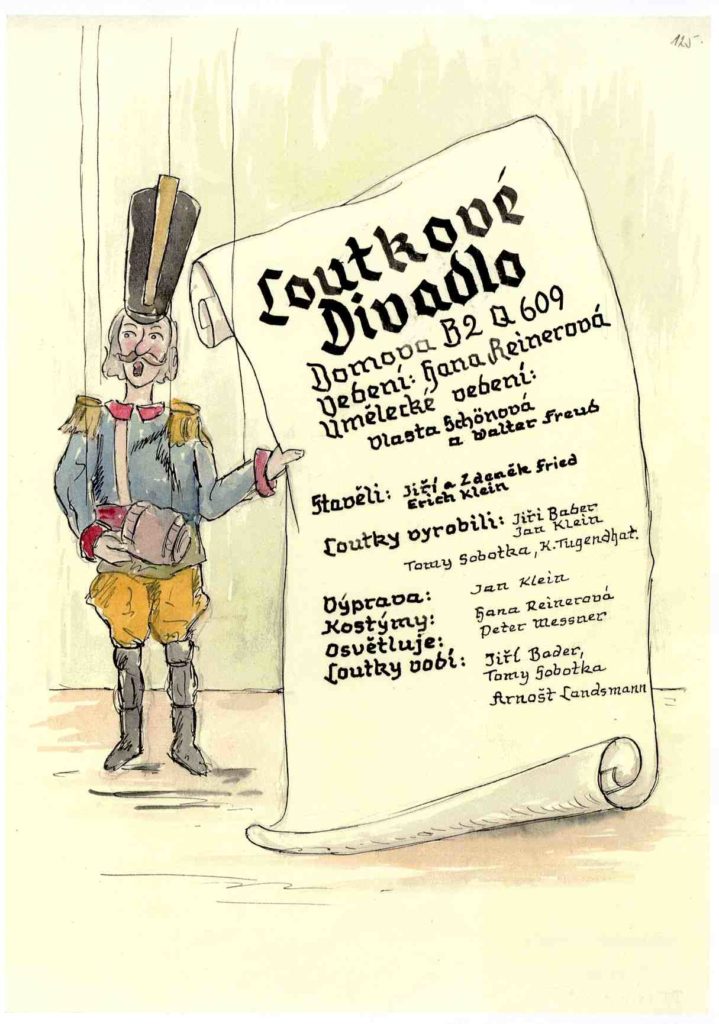Hana Reinerová, an accomplished translator from Bulgarian into Czech, whose birth centenary was marked on April 19, 2021, figured among the outstanding personalities of the Czech cultural community who had passed through the wartime Terezín Ghetto. She was born in Benešov near Prague as Hana Steinerová, but her family had lived in Bulgaria since the 1870s. Her grandfather Zikmund Steiner came to Bulgaria during the Czech campaign to help the emerging Bulgarian state. He served as stationmaster at the railway stations in Ruse, Plovdiv and Varna.
In 1932, during the economic crisis and upsurge of Bulgarian nationalism, the family returned to Czechoslovakia where Hana finished her studies at a classical college-preparatory school in Hradec Králové. At that time, she was already involved in the leftist movement around the magazine Mladá kultura (Young Culture). There she also met poet Jiří Orten and joined the group of his friends. Under the influence of her brother, medical student Jan, she wanted to become a physician. However, the occupation of the country and the introduction of the racial Nuremberg Laws marked a dramatic upheaval in her life. Her brother, who had joined the communist-led resistance movement, was later executed in Mauthausen. Having finished her training course for nurses specializing in postnatal care in Prague-Krč, Hana worked in a Jewish children´s home in Prague´s Sázavská Street, later known as Ve Smečkách Street. Hana then met music composer Karel Reiner (1910 – 1979) whom she later married, being his second wife. Since Reiner worked as an editor in the newspaper Židovské listy (Jewish Journal) they were both called up for a transport to the Ghetto in Terezín at a relatively later date, on July 5, 1943.

When in Terezín, Hana – after her initial assignment to manual jobs (cleaning, washing, stacking up planks at a sawmill) – was appointed carer for boys, aged 11 to 14, in the Q 609 home. As an educator she sought to make her educational impact on her charges as efficient as possible; she and her colleagues brought up the children primarily in the spirit of tolerance. That was why they celebrated not only Hanukkah but also Christmas as a universal holiday for all the people; Hana even composed a poem on this occasion. Many years later she managed to remember just a short passage: ”Oh, festive light, returning to us again with the magic of old fables…“. With her fellow prisoner and educator Otto Lederer she initiated (and also participated in its artistic design) the project of establishing a marionette theater for boys from her home. Marionettes were made by the boys themselves. One of them, called Lancík, even wrote a play entitled Začarovaný hrad (Spell-bound Castle). This was staged in the style of traditional marionette plays featuring medieval knights. After its performance in the Q 609 home, children from other homes in the Ghetto saw the play as well.

In her recollections recorded for the Terezín Memorial in 1988 Hana talked about a clandestine celebration of the anniversary of the foundation of the Czechoslovak Republic on October 28, 1943 in the girls´ home L 410 in the Ghetto. Hana was invited to that home together with her husband by Truda Sekaninová, after the war a communist politician, who was then an educator in this Mädchenheim. Also attended by cabaret artist and comedian Karel Švenk, the celebration offered a program of dances and poetry readings rehearsed with the girls by Truda.
Hana Reinerová was deported from Terezín to the Auschwitz-Birkenau concentration camp on October 1, 1944. She was sent from Auschwitz to Freiberg near Dresden and then to the Mauthausen concentration camp where she saw her liberation.
After the war, Hana, who had spent her childhood in Bulgaria, decided to enroll in Slavonic studies at the university, specializing in Bulgarian. In later years, she grew to be a prominent Czech translator of Bulgarian literature. Some of her major translations included, for instance, books by humorist Jordan Radičkov (My vrabčáci /We, Little Sparrows/, Cirkulárka /Circular Saw/) or fairy tales adapted by Angelo Karalijčev (in Czech translation called Pohádkový svět /Fairytale World/). Her translating career was eventually acknowledged and appreciated by Bulgarian state institutions.
In the 1990s, working in cooperation with Czech musicologist Milan Kuna, Hana was involved in a project aimed at recording and reconstructing melodies composed by her husband for the Terezín Ghetto performance of an old Czech play Ester. This was originally planned to be staged by actor, playwright and director E. F. Burian in his avant-garde theater Déčko (D 34) as early as in the 1930s when Karel Reiner played the piano and composed music for the ensemble. The Ester play could no longer be staged after the country´s occupation by Nazi Germany but Reiner´s friend Norbert Frýd, who also worked with Burian, decided to stage it in the Terezín Ghetto. The original musical scores have not been preserved but some of the people who had performed in the play and remembered its tunes (Jan Fischer, Hana Fantlová, Hana Pravdová) eventually helped in completing the musical notation that served as a background material for Kuna´s study, and subsequently as a basis for a new, modern interpretation of Rainer´s melodies (played by the band Květovaný kůň /Flowery Horse/ and pianist Aida Mujačič).
Hana Reinerová died on June 1, 2007.
Pavel Straka



